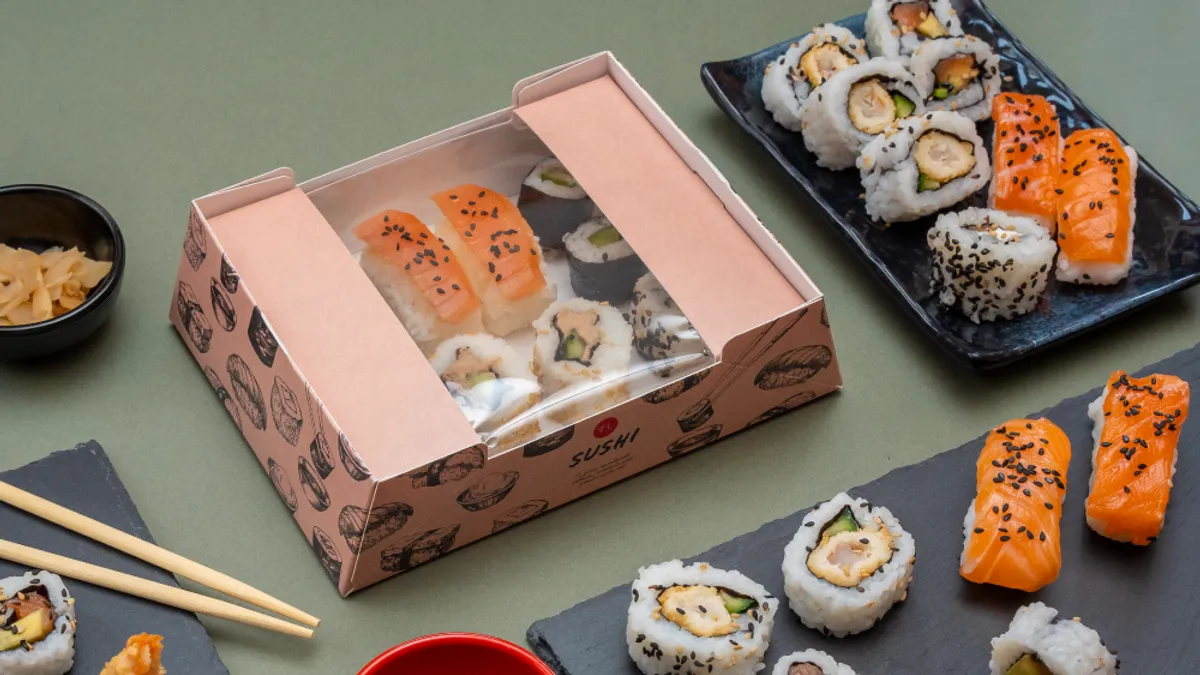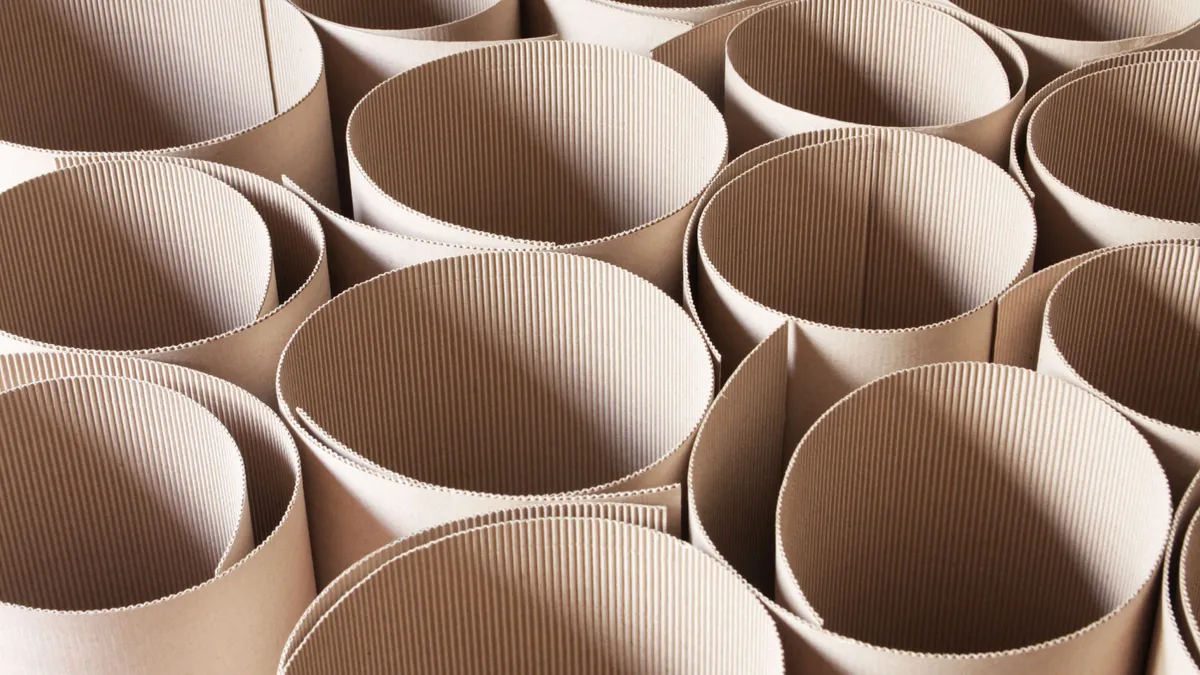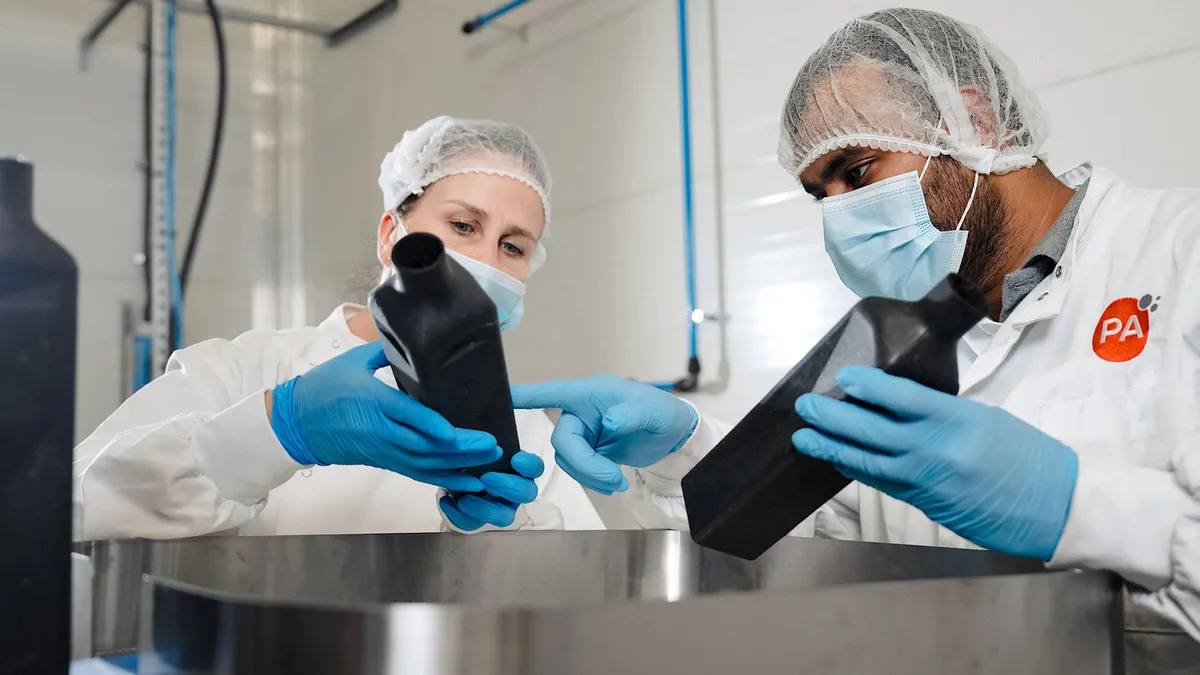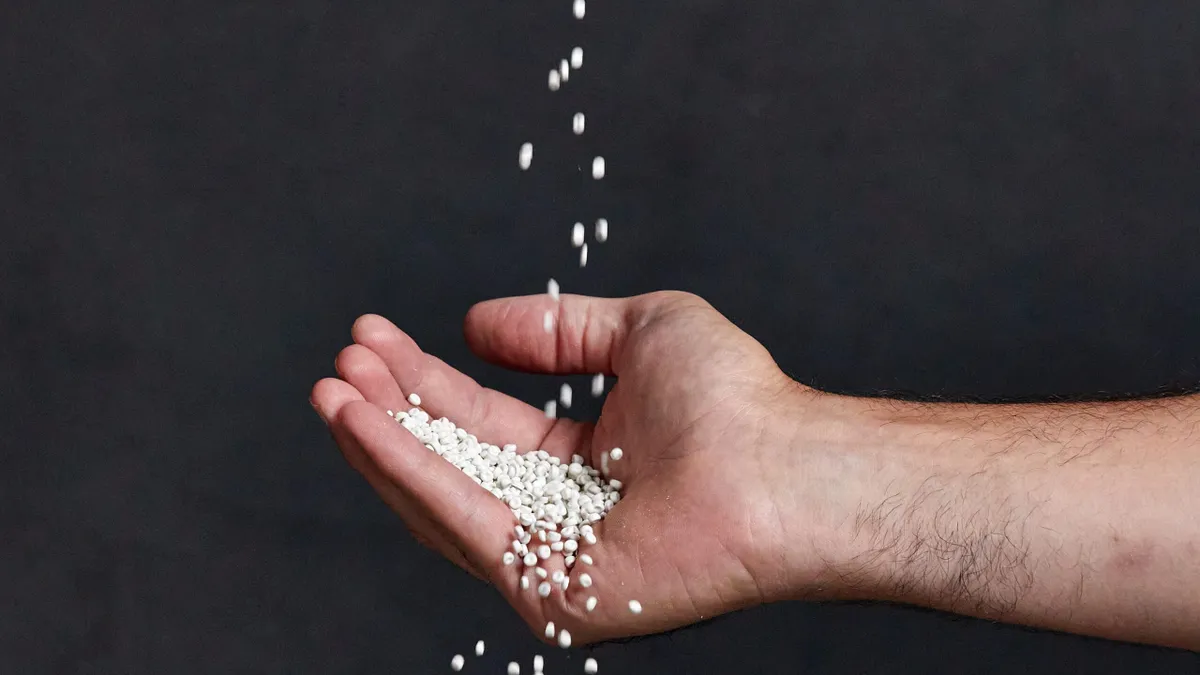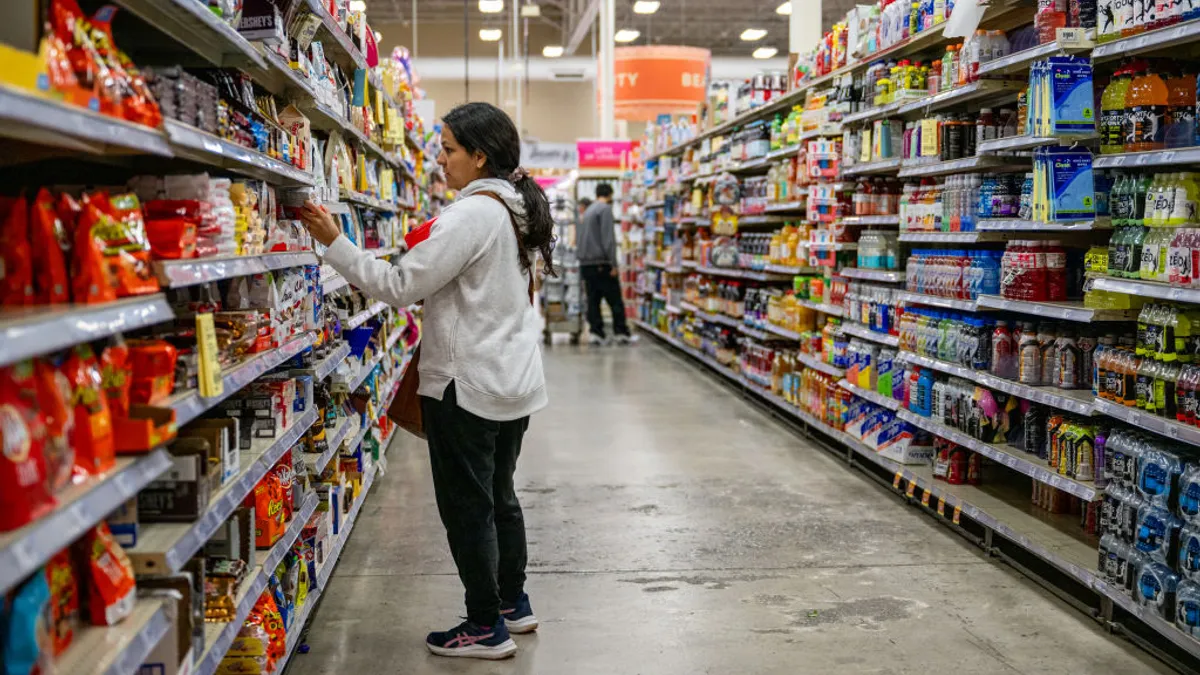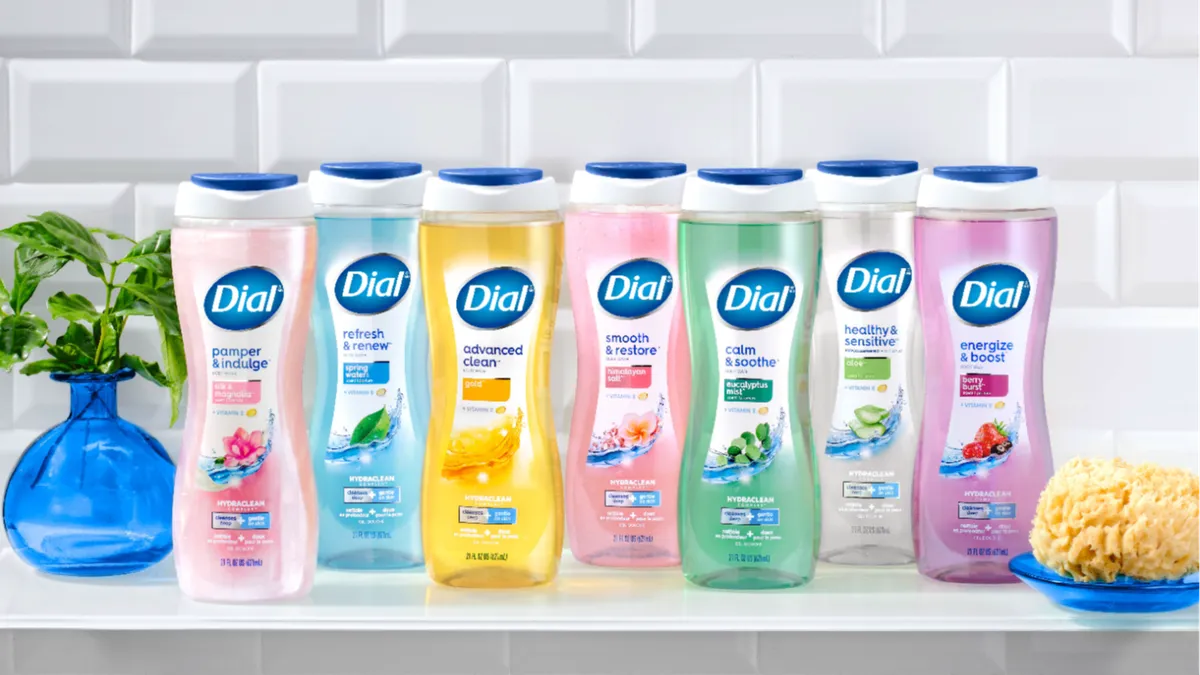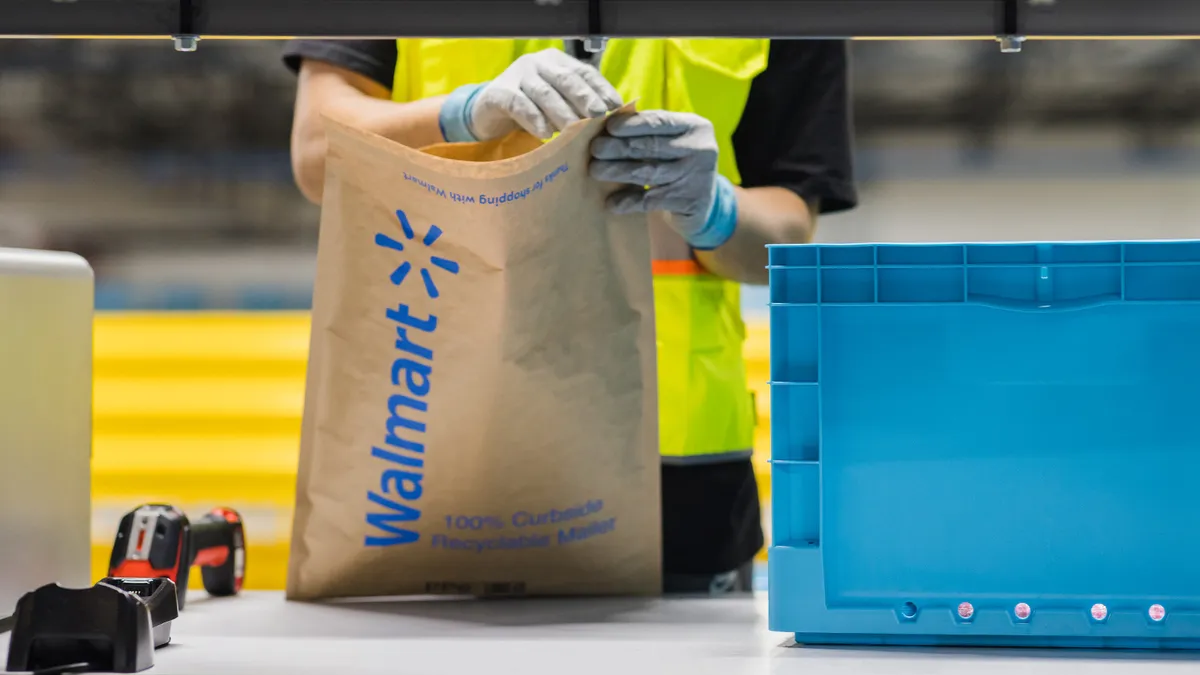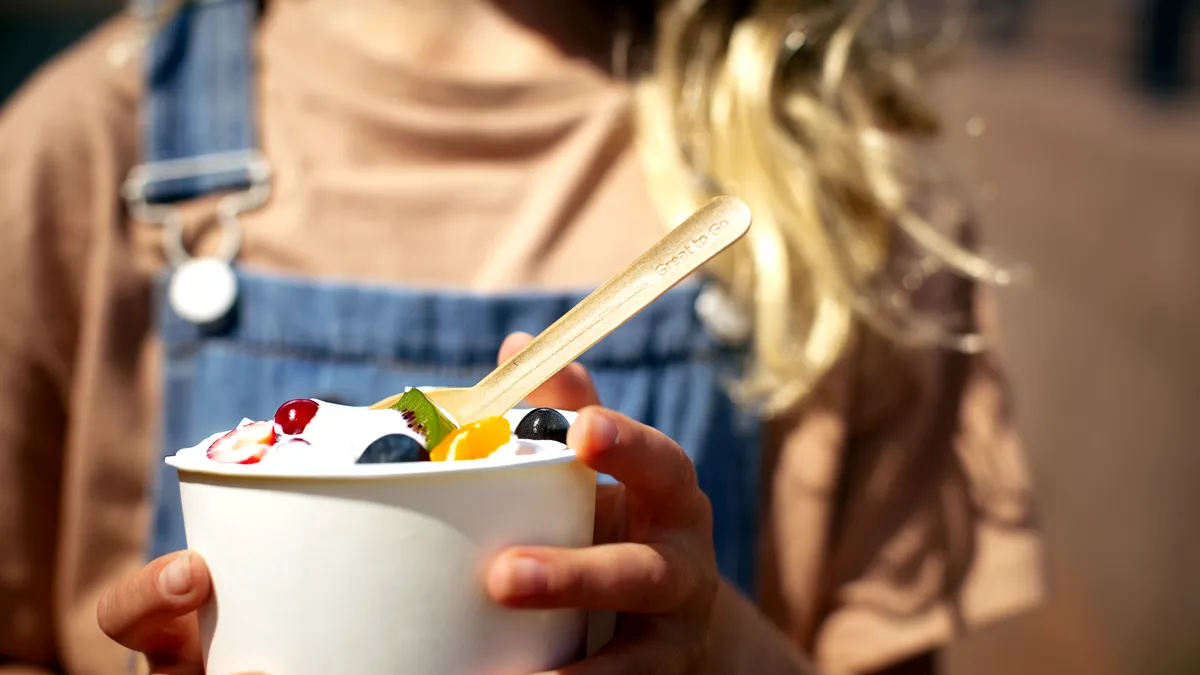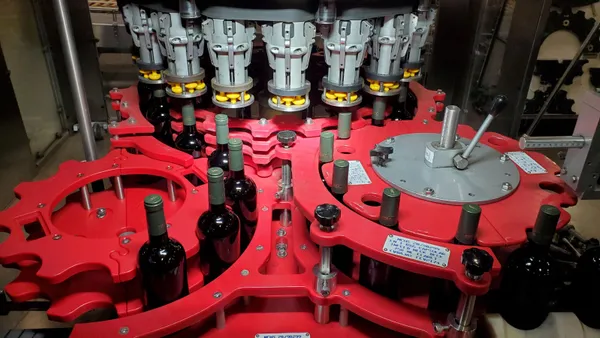Companies constantly innovate their packaging to get better performance, improve marketability and enhance sustainability. Here’s a look at some of the recent products and innovations on Packaging Dive’s radar.
Fiber for fish
Graphic Packaging International’s new fiber-based sushi packaging is now available in European markets. GPI notes in a news release that customers had been requesting alternatives to traditional plastic sushi packaging to comply with the EU’s proposed changes to packaging regulations and the UK’s new extended producer responsibility requirements for packaging.
The clear plastic window — which the company says is a key aspect for sushi packaging — is made from a cellulose material that is “recyclable in domestic paper waste streams and is certified as home and industrially compostable.”
Coffee talk
Also being tested in European markets is Danimer Scientific and TotalEnergies Corbion compostable biopolymer for coffee pods. The material has passed biodegradability tests and has been TÜV certified for home composting, according to the companies’ news release. Coffee pods are a notoriously difficult product to responsibly handle at their end of life, and often cannot be recycled curbside but rather via specialty services.
The companies say the material complies with the proposed packaging regulation changes in the EU, which, among other goals, require that certain plastic packaging — including for coffee pods and tea bags — are compostable.
Bottled up
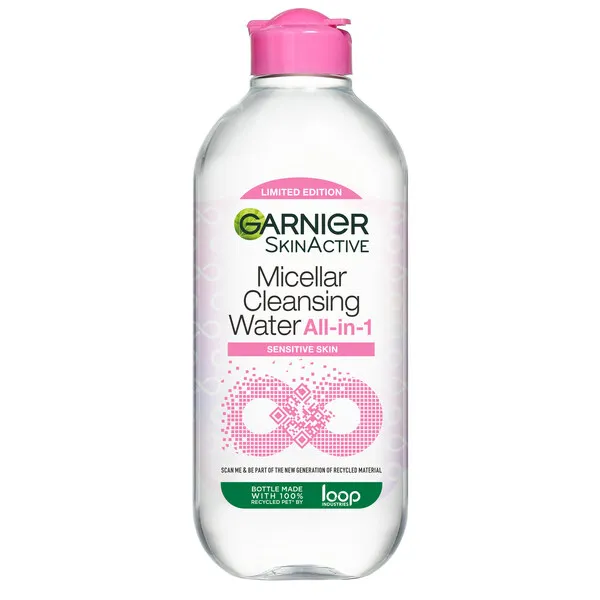
Beauty brand Garnier partnered with chemical recycler Loop Industries to create its first 100% recycled PET bottle for its Micellar Cleansing Water. The depolymerization technology uses low heat and no added pressure to convert “previously unrecyclable PET plastic waste” into the new PET resin, according to a news release. It will be available in the U.S. and France this month.
Because Loop’s technology is specific to PET and polyester, it does not apply to the polypropylene caps and labels on the micellar water bottles, a Loop spokesperson confirmed via email. However, non-PET materials do not interfere with the technology; they are simply filtered out. The spokesperson said that removing the cap when putting the bottle in a recycling bin assists with sorting. Loop has also partnered with other brands, including L’Occitane en Provence and Evian, for 100% recycled PET bottles.
One of Garnier’s sustainability goals is to make all plastic packaging from 100% recycled content by 2025.
Can-do attitude
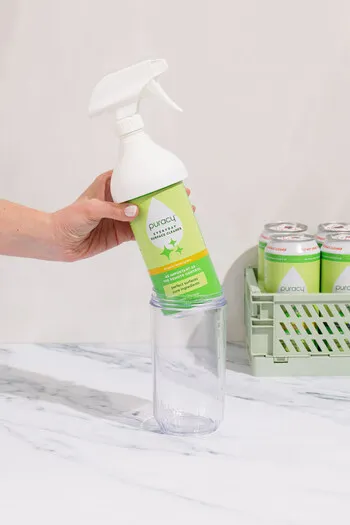
This month, plant-based cleaning and beauty product company Puracy is launching a newly designed can-centric refill and reuse system for surface cleaners that is intended to replace single-use products. The patent-pending system’s key component is an aluminum can that contains cleaning solution and is inserted into a reusable PET container; the nozzle is made of polypropylene, a spokesperson said via email. The cans can be recycled after use.
The ready-to-use cans eliminate some extra steps that some refill systems require, the company noted in a news release. "The Clean Can system is an extension of our dedication to delivering products to customers that don't create extra effort and also give them the opportunity to make a positive change for our planet,” said Co-founder Sean Busch in the news release.
Same sealing line, different material
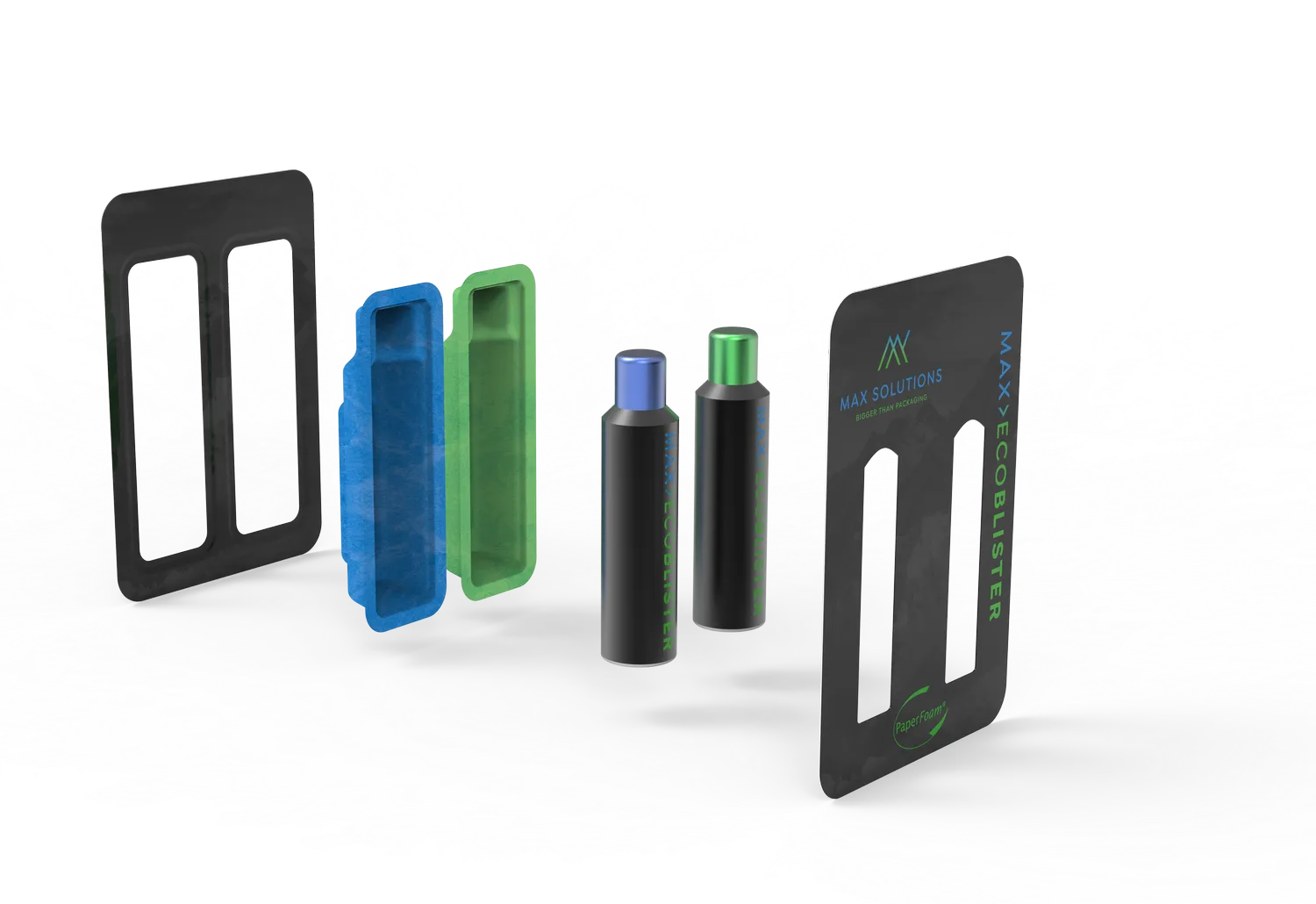
Specialty packaging startup MAX Solutions released a fiber-based alternative to conventional plastic blister packs. Transitioning to a more sustainable blister pack is easy because the product “seals on existing blister sealing lines at the same speed and heat as plastic but with half the pressure,” said Dennis Kaltman, president and chief operating officer, in a news release.
The set contains a fiber top card and a tray made of a fiber-based foam alternative, which the company says are both recyclable and the tray is compostable. The company says its injection molding process allows for unlimited color options and advanced package geometries.
Field day
Lay’s unveiled a soccer field in Santa Ana, California, that is made with recycled chip bags and packaging materials. The flexible plastic packaging sector, which includes chip bags, is expected to continue growing even though flexibles aren’t accepted in most domestic curbside recycling programs.
The company said in a press release that the materials for the “sustainable soccer field” were washed, shredded and converted to an underlying layer. The field layer has a 10-year lifespan and is designed to be recycled at end of life. This Lay’s RePlay field is the sixth globally and the first in the U.S.



